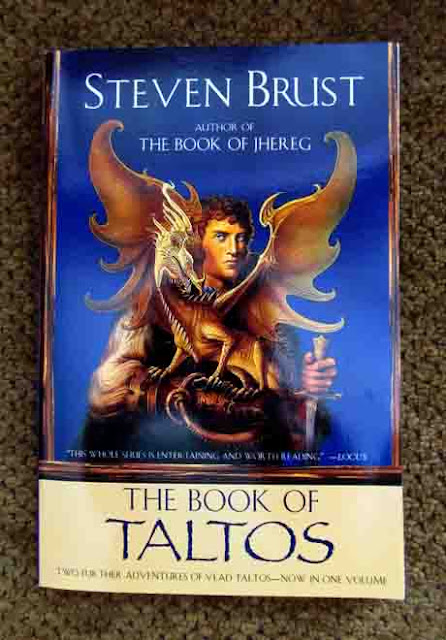 |
| Two books worth reading. And rereading. |
The more I search the Internet, the more I find young
authors who are eschewing traditional publishers. Perhaps they’ve grown tired of accumulating
rejection letters. Perhaps they like the idea of owning the entire publication
process. Their efforts are fueled by
youthful energy, and dreams of building their own literary empires. A common promise is that their novels are revolutionary and groundbreaking.
Recently, it’s struck me how, in some ways, I chose
inappropriate literary role models early in my career. At first, I bought any books on writing I
found in the bookstore, and subscribed to “Writers Digest” magazine. But I didn’t take any of my favorite novels
off the shelf and study how the authors had constructed their narratives. Nor did I study the market to understand what
publishers were currently offering.
Sure, I bought books from the authors whose work I had enjoyed in the
past, but that’s different from perusing the bookstores, taking notes on
popular authors, assessing trends, and learning which publishers were buying
what kind of stories.
I simply assumed that the story I was burning to write would
find a home somewhere. And of course, my
novel would not only be revolutionary
and groundbreaking, but most
assuredly a bestseller.
Only after I finally finished my first effort, a sprawling
Space Opera, did I study the market.
Doing so helped me realize that the approach I had taken, and the
segment of the market I intended to revolutionize,
had moved on from the kind of novels I fell in love with in my youth. Had I done this homework earlier, I might not
have lavished so much time and effort on my first novel. Eventually, I decided it would take more work
to salvage that novel than to write another the correct way. As unbridled optimism had failed me, I opted
for what seemed the smartest course, and studied the recent Hugo and Nebula
award winning novels. I now view that as
my second mistake.
While I discovered great authors such as Dan Simmons and Kim
Stanley Robinson, it didn’t occur to me that they had honed and refined their
skills over time. As an aspiring author,
with one failed attempt behind me, I was hardly ready to aim that high. So, for my next novel, I did tons of
research. I constructed elaborate charts
on my characters, worlds, and plots.
Yet, despite all the preparation, I grew overwhelmed with the enormity
of the task I had laid out for myself.
And so, at a certain point, I abandoned that project. “I’m not ready to write this novel,” I
reasoned. “I’ll start another, a simpler
one, one I’m capable of finishing. Then
I’ll come back to this one and finish it.”
But I didn’t alter this new methodology, or lower my sites.
Consequently, my office is full of research notes and abandoned
novels.
Last year, I lowered my sites. I decided to abandon all the elaborate
preparation work that some authors utilize, but seems to overwhelm me. And I decided to model my efforts on those of
Steven Brust. His Vlad Taltos novels
resonate with me, and are a curious fusion of Science Fiction and Fantasy. He labors carefully over his prose, injecting
each sentence with style and wit. This
not only makes reading his books easy and enjoyable, but also helps them
resonate with me emotionally. He doesn’t set unachievable targets in regards to
bettering himself, such as my foolish attempts to master Hard Science issues
that require a solid grounding in Physics to even begin to understand. Nor does he push himself beyond his limits in
the unending, unreasoning desire to produce more, more, more. Instead, he takes his time: he writes a page
or two a day, and invests all his energies in the flow of words, sentences, and
yes, most importantly, his characters.
Steven Brust pours all the vagaries of humanity into his characters, which helps
me identify with them. Especially
Vlad. It never ceases to amaze me how
much I identify with Vlad Taltos, given that I don’t usually get on with
antiheroes. And while he evolves on his
journey through life, during those early years, and in those early novels, Vlad
is very much that, the most difficult kind of character to write well: the
antihero.
Reading his work, and trying to adopt a similar mindset, has
helped me become more prolific. I’ve
grown more comfortable with my capabilities.
I no longer aim to win awards, write groundbreaking,
blockbuster novels, or revolutionize
the field. While such dreams were
understandable, given the enthusiasm of youth, I’ve sought to uncouple them
from my literary efforts. In the process,
I’ve rediscovered the simple pleasures of writing, which, somewhere along the
way, I had forgotten.
I’m so glad I discovered Steven Brust, and decided to model
my writing on his. I may never achieve
his level of greatness, but of all the authors I’ve studied, his approach
seems…wise.
It goes without saying that if you’ve not yet found a published author to model yourself on, I
can make a suggestion.
At peace with my capabilities,
Dragon Dave
Related Dragon Cache entries

No comments:
Post a Comment